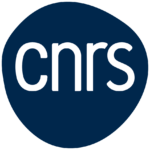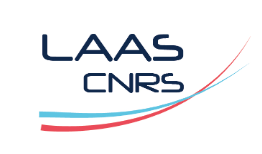Organizing Committee
Comité d’organisation
Benoît Bonnet-Weill (CNRS – LAAS Toulouse)
Massimo Fornasier (Technical University of Munich)
Hélène Frankowska (CNRS – Sorbonne Université)
Giuseppe Savaré (Bocconi University)
This goal of this workshop is to bring together international experts working at the interface between optimal transport, control theory for large-scale systems and their macroscopic approximations, and variational methods for problems formulated in measure spaces. Indeed, a wealth of recent theoretical-and application-oriented findings – notably in the fields of statistical learning, measure relaxations of variational problems and mean-field control – have brought to light new connexions between theses research fields. In this context, we want to contribute to the development of a meetings cycle in order to facilitate the propagation of new ideas and results in these lively domains, as well as to stimulate new collaborations around these topics which are currently investigated by neighbouring communities.
This workshop will aim at covering three main thematic axes, which enjoy strong interconnections with one another and already produced fruitful interactions in recent times. The first of these segments is that of optimal transport theory, which has become instrumental in a growing number of applications and more theoretical mathematical fields, and plays a pivotal role in the foundations of many of the ensuing topics. The second is that of the macroscopic descriptions and control of multi-agent and many-body systems, which includes mean-field control problems, large-scale limits of cooperative dynamics and graphons, as well as continuous models for deep neural networks. The third and last one is that of resolution methods for variational problems in measure spaces, which can either arise from measure relaxations of classical variational problems or directly stem from the aforedescribed fields.
Regarding its impact, this workshop will bring together researchers from at least 7 European countries, and is planned to be the sequel of a meeting taking at the Technische Universität München in April 2023, organised by Martin Burger, Massimo Fornasier, Gabriel Peyré and Giuseppe Savaré. As such, we believe that it has the potential to attract many postdoctoral and PhD students – both from France and abroad –, as well as fellow researcher and colleagues of the fields interested in participating to the gathering. We also think that main themes of the conference may be of interest for colleagues working in control theory, particle dynamics and PDE analysis at Aix-Marseille Université.
Le but de cet atelier est de réunir des experts internationaux dont les recherches se situent à l’interface entre le transport optimal, la théorie du contrôle pour les systèmes de grande dimension et leurs approximations macroscopiques, et les méthodes variationnelles pour des problèmes formulés dans les espaces de mesures. Récemment, de nombreux développements théoriques et applicatifs ont mis en lumière de nouvelles connexions entre ces différents champs de recherche, notamment dans les domaines de l’apprentissage statistique, des relaxations mesurées de problèmes variationnelles, et du contrôle à champ moyen. Dans ce contexte, nous souhaitons contribuer au développement d’un cycle de rencontre visant à mettre en relation les experts de ces différents domaines, afin de faciliter la propagation de nouvelles idées de résultats dans ces domaines très dynamiques, et de stimuler la naissance de collaborations autour de ces sujets en plein essors et dont l’étude est actuellement menée par des communautés voisines.
Cet atelier couvrira trois axes thématiques pincipaux possédant de nombreuses interconnexions et ayant récemment menés à de riches interactions ces dernières années. Le premier de ces volets porte sur la théorie du transport optimal, qui occupe maintenant une place centrale dans un grand nombre des mathématiques – aussi bien appliquées que fondamentales –, et qui a joué un rôle déterminant dans l’essort et la formulation de nombreux champs de recherche. Le second se focalisera sur les approximations macroscopiques et problèmes de contrôle pour les systèmes multi-agents, et traitera au sens large de contrôle à champ-moyen, de limites macroscopiques et de graphons pour les dynamiques coopératives et de modèles continus pour l’entraînement des réseaux de neurones profonds. Le dernier traitera enfin de méthodes de résolutions pour les problèmes variationnels formulés dans les espaces de mesures, qui peuvent aussi bien apparaître dans le cadre de procédures de relaxations appliquées à des problèmes variationnels classiques, soit être issus des divers champs de recherches que nous avons détaillés ci-dessus.
A propos de son impact, cet événement rassemblera des chercheurs provenant d’au moins 7 pays Européens, et se veut être la continuation d’une conférence organisée en Avril 2023 à la Technische Universität München par Martin Burger, Massimo Fornasier, Gabriel Peyré et Giuseppe Savaré. De ce fait, nous pensons que ce dernier à le potentiel d’attirer de nombreux doctorants et chercheurs postdoctoraux travaillant à l’international, ainsi que des collègues évoluant dans les domaines couverts par la conférence et désireux de participer à cette rencontre. Par ailleurs, nous pensons que les thèmes de cette dernière pourraient intéresser grandement nos collègues travaillant à l’interface entre systèmes de particules, théorie du contrôle et analyse des EDPs à la faculté d’Aix-Marseille.
SPEAKERS
Charles Bertucci (École polytechnique)
Blanche Buet (Université Paris-Saclay)
Piermarco Cannarsa (University of Rome)
Pierre Cardaliaguet (Université Paris Dauphine-PSL)
Giulia Cavagnari (Politechnic University of Milan)
Max Fathi (Université Paris Cité)
Anna Korba (ENSAE Paris)
Milan Korda (CNRS – LAAS Toulouse)
Jean-Bernard Lasserre (CNRS – LAAS Toulouse)
Hugo Lavenant (Bocconi University)
Mark Peletier (Eindhoven University of Technology)
Gabriel Peyré (CNRS – École Normale Supérieure Paris)
Nastassia Pouradier Duteil (INRIA & Sorbonne Université)
David Poyato (University of Granada)
Francesco Rossi (University of Padova)
Filippo Santambrogio (Université Claude Bernard Lyon 1)
Alessandro Scagliotti (Technical University of Munich)
Giacomo Sodini (Université of Vienna)
Claudia Totzeck (University of Wuppertal)
François-Xavier Vialard (Université Gustave Eiffel)
Enrique Zuazua (University of Erlangen-Nuremberg)




